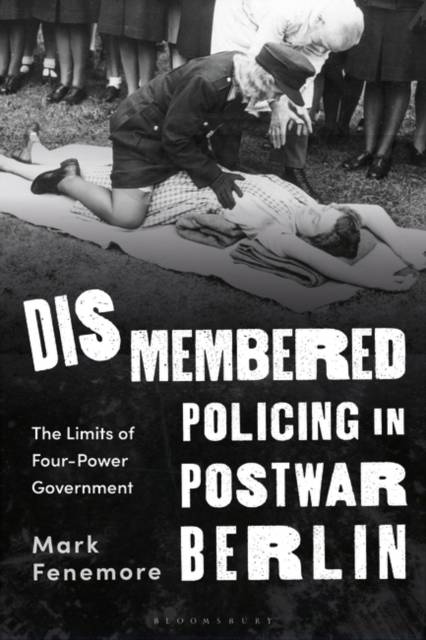
- Afhalen na 1 uur in een winkel met voorraad
- In januari gratis thuislevering in België
- Ruim aanbod met 7 miljoen producten
- Afhalen na 1 uur in een winkel met voorraad
- In januari gratis thuislevering in België
- Ruim aanbod met 7 miljoen producten
Dismembered Policing in Postwar Berlin
The Limits of Four-Power Government
Mark FenemoreOmschrijving
Assessing the impact of Germany's defeat on the policing of Berlin, this book addresses the reconstruction of the police force as a crucial component of four-power government. As Mark Fenemore shows, getting four nationalities to work together to administer a complex major city was a unique undertaking, never before attempted. The situation was made even more difficult by the conditions of hunger and desperation that caused a spike in crime. The stage was a city in ruins, the capital of a defeated, divided, prostrate, occupied country. The audience the administrations were playing to was a population deeply scarred by Nazism, total war, cold, hunger and mass rape.
Dismembered Policing explores postwar Berlin from the perspective of all four occupiers and of ordinary Berliners. Fenemore discusses how each occupation government sought to act as an advertisement for its country's respective cultural values, mores and system of governance. As an international, multi-archival study, the book draws on evidence in French and German as well as in English. Using law enforcement as a lens, it examines issues like mass rape, the black market, interracial sex and political violence. With hunger, sexually motivated assault and dismembered body parts featuring prominently, it is reminiscent of Ian McEwen's novel The Innocent, but based on real police files.Specificaties
Betrokkenen
- Auteur(s):
- Uitgeverij:
Inhoud
- Aantal bladzijden:
- 272
- Taal:
- Engels
Eigenschappen
- Productcode (EAN):
- 9781350334168
- Verschijningsdatum:
- 4/05/2023
- Uitvoering:
- Hardcover
- Formaat:
- Genaaid
- Afmetingen:
- 156 mm x 234 mm
- Gewicht:
- 557 g

Alleen bij Standaard Boekhandel
Beoordelingen
We publiceren alleen reviews die voldoen aan de voorwaarden voor reviews. Bekijk onze voorwaarden voor reviews.









